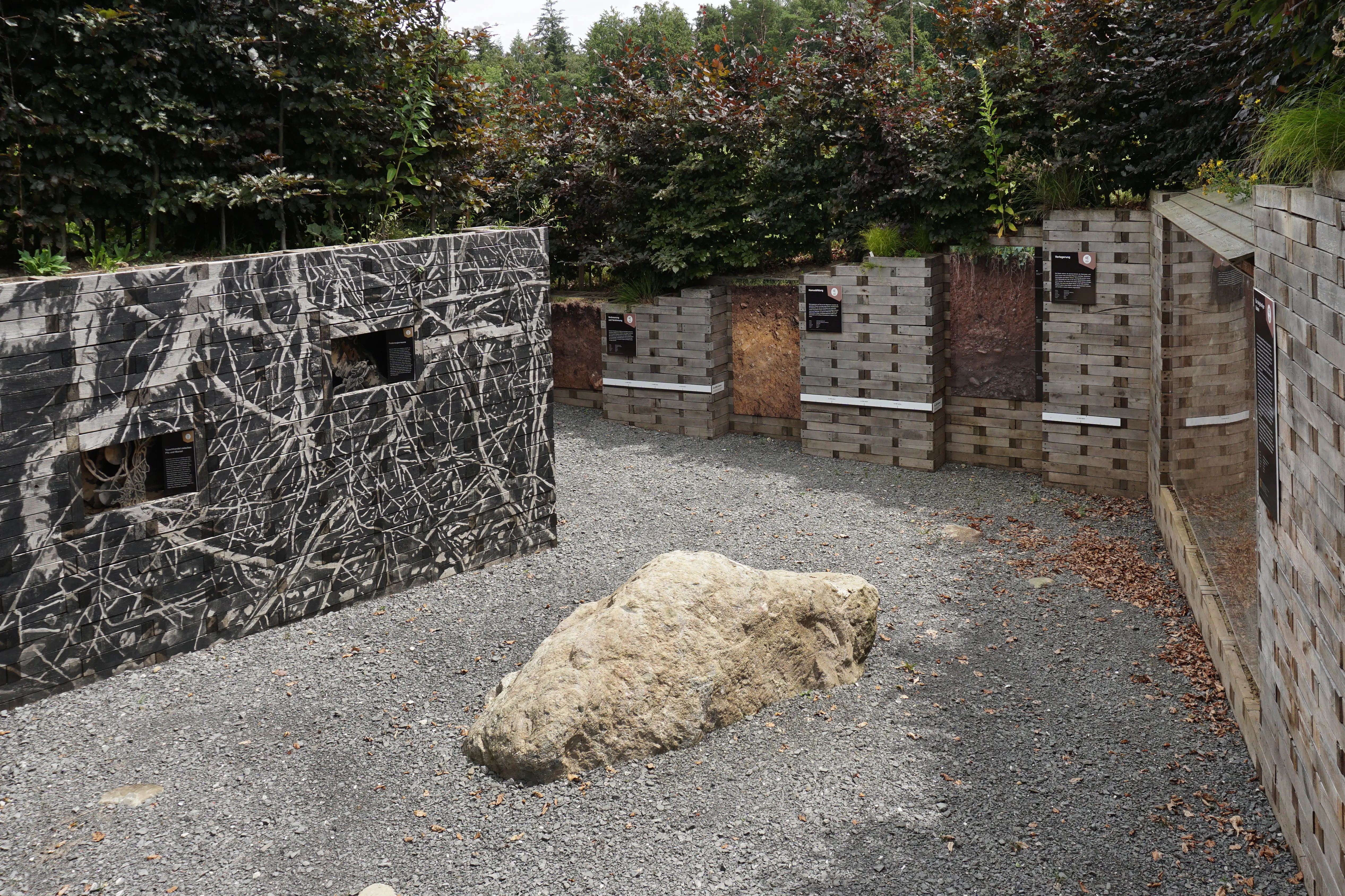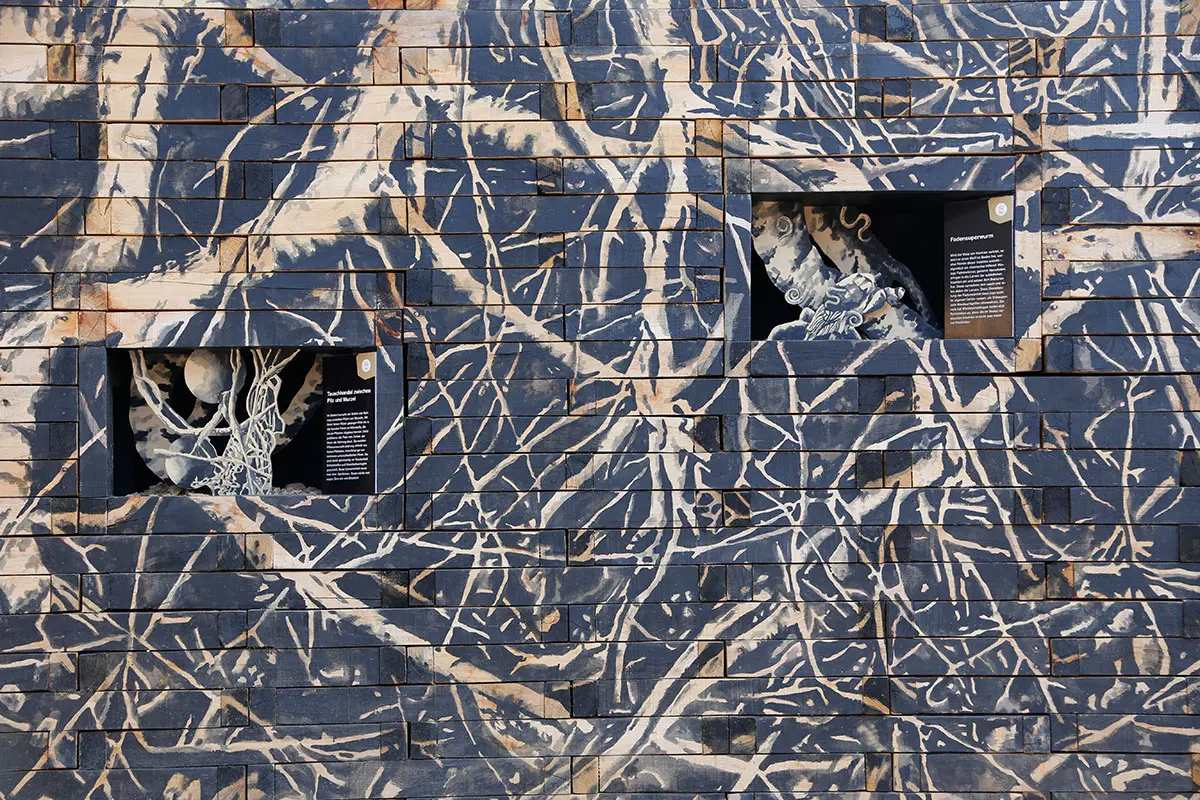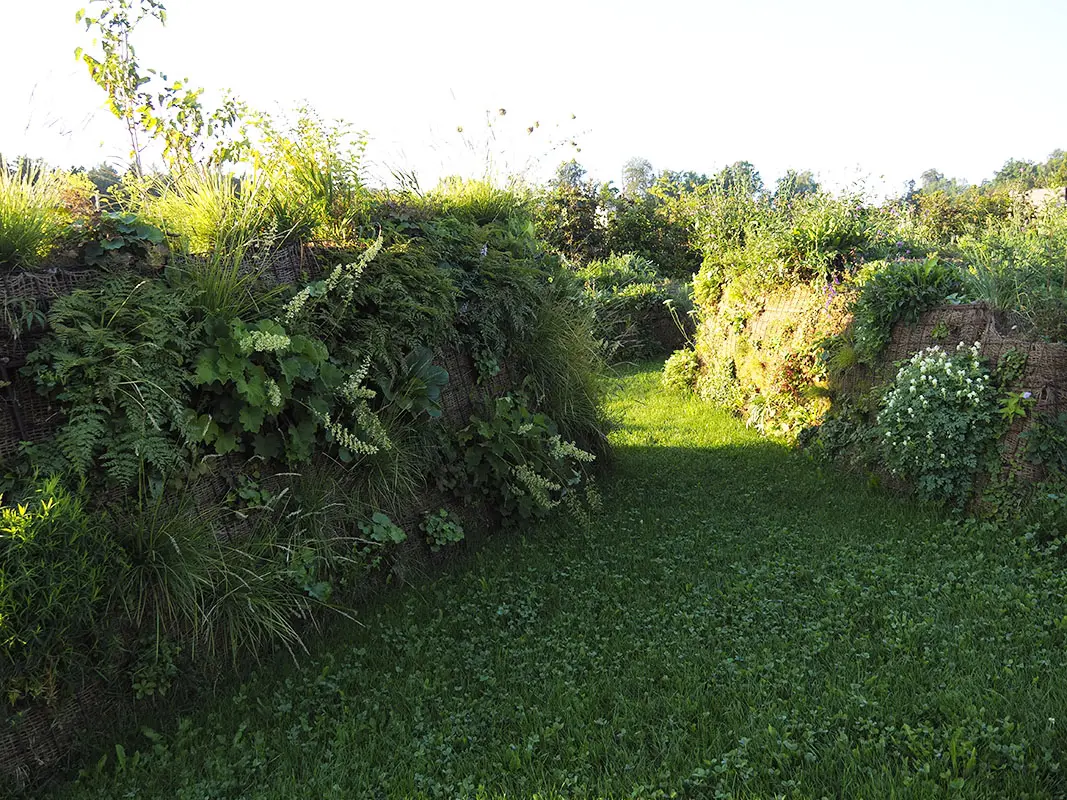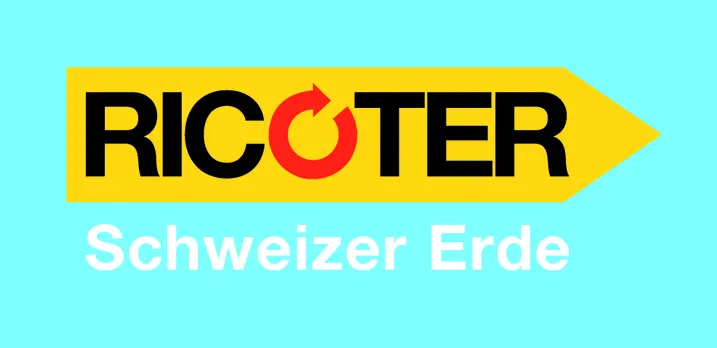Erdreich - Treasure below your feet
Enter a world below your feet! The exhibition «Erdreich» (only available in German) on the ZHAW-Campus Grüental in Wädenswil puts the valuable resource soil center stage.
Background of the project
Soil provides the basis for our food, serves as a filter for our drinking water, retains carbon and nutrients, is a habitat for a myriad of creatures – insects, worms, microorganisms and fungi – or the building ground for our houses and infrastructures. But it's easy to forget soil. While contemplating a green landscape hardly anyone wonders what lies below, that soil has a formation history of about 10'000 years or that there are more living beings in a single shovel of healthy soil than there are people on earth. Thus the fact that soil is a limited and practically non-renewable resource is often forgotten.
The sustainable use of soil and it's countless functions present a growing challenge for our growing society. The goal of the exhibition «Erdreich» is to create awareness for the importance of soil as a natural resource.
Whether allotment gardens, flower meadows or compost heaps - the Project«SoundingSoils» is lending soil a voice and makes the sounds of its inhabitants tangible. An extensively cultivated alpine meadow, for example, sounds like this:

Opening hours and events
- The exhibition «Erdreich» can be visited freely every day of the week. If you'd like to learn more about soil you can do so during a guided tour.
- You can find the exhibition «Erdreich» here: Location plan (PDF 179 kB)
Excursions for schools and groups (only available in German)
During the excursions in the Erdreich we will be giving you insight into the ground below your feet. We will be showing you how slowly soil develops, what properties it can have, how diverse their inhabitants are, which functions they serve and how they can be used. Soil is a valuable resource that is coming under increasing pressure in densely populated Switzerland. In the Erdreich you'll not only learn about positive examples in the areas of soil protection, but also hear about unsolved problems and the conflicts arising between different interest groups.
In the practical portion of the excursion the students learn to take soil samples themselves, analyse them and get to draw their own conclusions.
We offer a variety of learning units with various thematic focuses for all school levels.
- For Cycle 2, «Lehrplan 21» the subject Nature, Human, Society [Natur, Mensch, Gesellschaft (NMG)] is perfectly suited for a visit to the Bodengarten. While one half of the class is exploring the Erdreich on their own under supervision, the second half is completing an assisted practica. The students examine and evaluate the pH value, the granulation, the lime content or the structure of their own soil samples.
- For Cycle 3, «Lehrplan 21» we recommend a visit of the Erdreich with the subjects Nature and Technology [Natur und Technik], as well as Spaces, Times, Societies [Räume, Zeiten, Gesellschaften]. Here the class will work in two groups as well. While one group is individually exploring the Erdreich, answers questions and makes their own observations, the second group will be discussing the usage of soil and the interests and demands of the different stakeholders. How can the production of food be reconciled with the promotion of biodiversity? What is more important: the construction of affordable appartements or the protection of crop rotation areas?
- At Secondarylevel 2, «Lehrplan 21» independent exploration of the Bodengarten can be combined with a variety of practical portions, depending on the subject: collecting living organisms housed in the soil with a reading funnel and identyfing them with a microscope in the subject Biology; determining the pH, lime or nutrient content in the subject Chemistry or measuring the density, natural water content or suction tension in the subject Physics.
Projectteam
- Forschungsgruppe Bodenökologie: Beatrice Kulli, Simon Amrein
- Forschungsgruppe Nachhaltigkeitskommunikation und Umweltbildung: Petra Bättig-Frey, Monica Ursina Jäger, Rahel Skelton
- Forschungsbereich Urbane Ökosysteme: Erich Stutz
- Lehr- und Forschungsbetrieb: Nils Honetschläger
- Main sponsor: Lotteriefonds
- Object sponsors: Bodenkundliche Gesellschaft Schweiz, Niutec AG, Ricoter Erdaufbereitung AG
- Georg und Bertha Schwyzer-Winiker Stiftung
This project has been made possible due to the support of the following sponsors:







